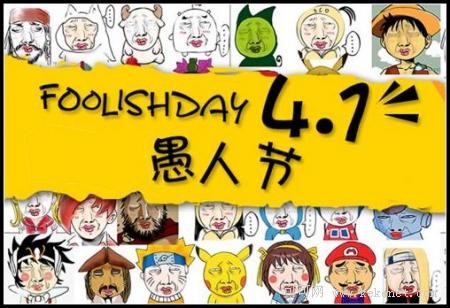(单词翻译:单击)
April Fools' Day is a day to play jokes on others, No one knows how this holiday began but people think it first started in France.
愚人节是大家互相开玩笑,用假话捉弄对方节日。没人知道这个节日时怎么开始的,但是很多人认为是起源于法国。
In the 16 th century, people celebrated New Year's Day from March 25 to April 1. In the mid—1560s King Charles IX changed it from March 25 to January 1. But some people still celebrated in on April 1, so others called them April Fools.
16世纪,人们庆祝新年是从3月25日到4月1日,到了16世纪中期,查理四世国王把新年改为每年的1月1日到3月25日。可是一些因循守旧的人反对这种革新,依然按照旧历固执地在4月1日这一天送礼品,庆祝新年。主张改革的人对这些守旧者的做法大加嘲弄。
Each country celebrates April Fools' Day differently. In France, people call the April Fools “April Fish”. They tape a paper fish to their friends' backs to fool them. When he or she finds this , they shout “April Fish!”
每个国家庆祝愚人节的方式都不相同。在法国,被愚弄的人成为“上钩的鱼”。人们把用纸剪裁成的鱼贴在朋友的背后,当朋友们发现时,人们就大喊:“上钩的鱼”。
In England, people play jokes only in the morning. You are a “noodle” if someone fools you. In Scotland, April Fools' Day is 48 hours long. They call an April Fool “April Gowk”. Gowk is another name for a cuckoo bird.
在英国,愚人节时,大家只是在早上互相开玩笑。如果你被愚弄了,你就会被成为“面条”。在苏格兰,愚人节会持续48个小时,被愚弄的人被称为“四月布谷鸟”。
In the America, people play small jokes on their friends and any other people on the first of April. They may point down to your shoe and say, “Your shoelace is untied.” If you believe them and look down to see, you are an April Fool then.
在美国,4月1日,大家互相开玩笑,用假话捉弄对方。他们会指着你的鞋子说:“鞋带开了”,如果你真的相信了,向下看自己的鞋子,你就成了四月傻瓜。



